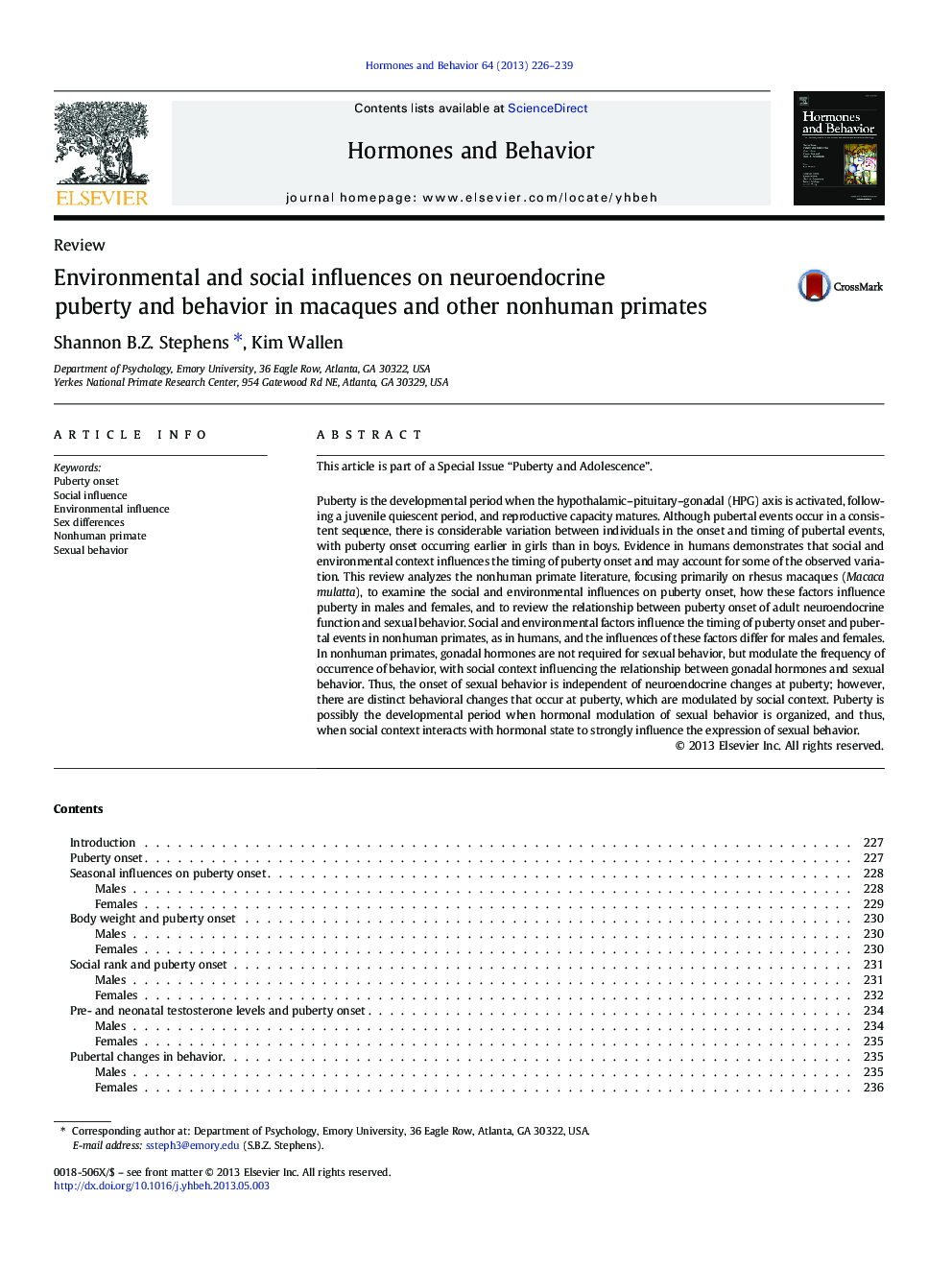| کد مقاله | کد نشریه | سال انتشار | مقاله انگلیسی | نسخه تمام متن |
|---|---|---|---|---|
| 322743 | 540231 | 2013 | 14 صفحه PDF | دانلود رایگان |

• In nonhuman primates, social and environmental factors influence the timing of puberty.
• Males and females differ in how these factors influence pubertal events.
• Sexual behavior increases at puberty and may be independent of neuroendocrine change.
• Social context and neuroendocrine function modulate sexual behavior at puberty.
This article is part of a Special Issue “Puberty and Adolescence”.Puberty is the developmental period when the hypothalamic–pituitary–gonadal (HPG) axis is activated, following a juvenile quiescent period, and reproductive capacity matures. Although pubertal events occur in a consistent sequence, there is considerable variation between individuals in the onset and timing of pubertal events, with puberty onset occurring earlier in girls than in boys. Evidence in humans demonstrates that social and environmental context influences the timing of puberty onset and may account for some of the observed variation. This review analyzes the nonhuman primate literature, focusing primarily on rhesus macaques (Macaca mulatta), to examine the social and environmental influences on puberty onset, how these factors influence puberty in males and females, and to review the relationship between puberty onset of adult neuroendocrine function and sexual behavior. Social and environmental factors influence the timing of puberty onset and pubertal events in nonhuman primates, as in humans, and the influences of these factors differ for males and females. In nonhuman primates, gonadal hormones are not required for sexual behavior, but modulate the frequency of occurrence of behavior, with social context influencing the relationship between gonadal hormones and sexual behavior. Thus, the onset of sexual behavior is independent of neuroendocrine changes at puberty; however, there are distinct behavioral changes that occur at puberty, which are modulated by social context. Puberty is possibly the developmental period when hormonal modulation of sexual behavior is organized, and thus, when social context interacts with hormonal state to strongly influence the expression of sexual behavior.
Journal: Hormones and Behavior - Volume 64, Issue 2, July 2013, Pages 226–239